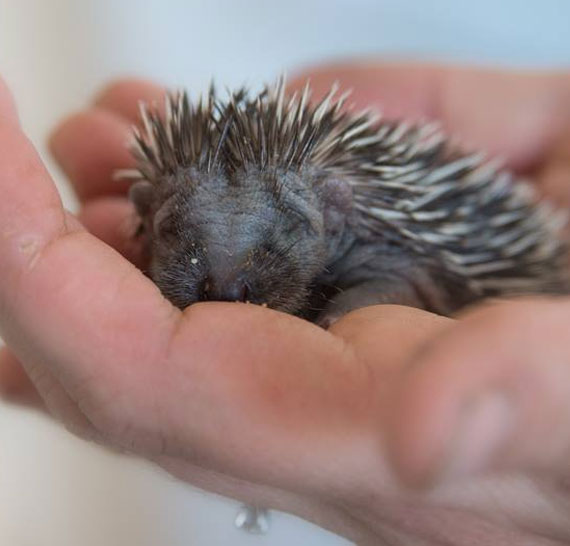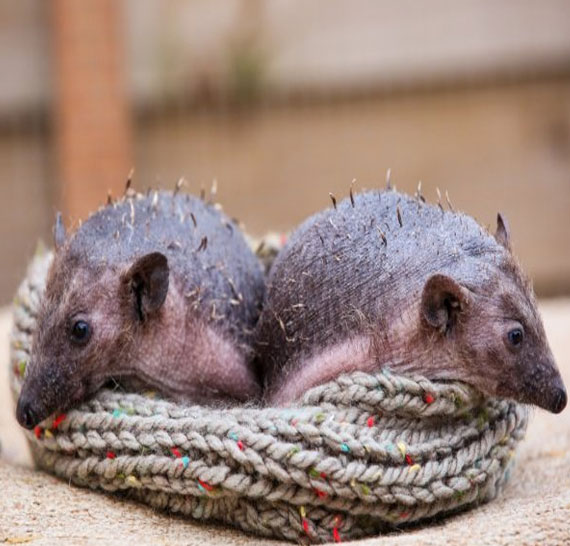Our Work with Hedgehogs
Every year we admit over 500 hedgehogs from the local area. All are hedgehogs that needed rescue due to the following reasons:
- Out during the daytime and was not a nesting mother
- Too small to survive winter
- Genuinely orphaned – a nest or orphan is monitored for parent activity for some time. This however does not apply to daytime wandering babies.
- Injured or sick
- ‘Sunbathing’ – (this is not normal behaviour), limp or ‘lifeless’
- Screaming – can be an indication of poisoning
For every hedgehog that is admitted, they get fluids by injection for the first 3 days. Nearly every single hedgehog is dehydrated to a degree. Every hedgehog’s faecal sample is also studied for internal parasites under the microscope and then treated accordingly. The reason why this is important is because hedgehogs can carry an array of different internal parasites and all of them have different treatments.
If you see a hedgehog that fits any of the above criteria, please contain and call your nearest hedgehog rescue.
How to Handle a Hedgehog
Hedgehogs have spines and they can be very sharp so wear some thick gardening gloves or get a towel to lift it without harming your hands.
Contain
Once you have your hog, place it in a deep box or cat carrier. Hedgehogs are good escape artists so please ensure the box is high sided and secure. Hedgehogs are also very messy so put some newspaper or a towel in the bottom. If you are using a cardboard box, any spilt water could destroy the cardboard and aid the escape of the hedgehog. Please keep the box somewhere warm and quiet.
What you can do to help the hedgehog until help arrives
If the hog feels cold to the touch, provide additional warmth. A heat pad or a hot water bottle is ideal but please wrap it in a towel so the hedgehog doesn;t get too hot and place it at the bottom of the box. Place the hog on it and cover the hedgehog with a towel. Make sure there is room for the hog to get off the heat if it gets too warm. You can also give them a small bowl of water. The National Recipe for rehydration solution is 1 litre of warm water mixed with a tablespoon of sugar and a teaspoon of salt.










